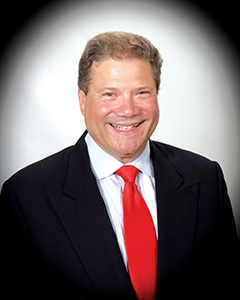
Howard Berg, Binghamton University alumnus and undefeated Guinness Book of World Records holder for Fastest Reader in the World, launched an online speed-reading program a few days ago exclusively for BU students.
He hopes students will utilize this opportunity to enhance their reading pace and comprehension rate.
Berg’s newly launched site, sunyb.howietips.com, offers free online videos on how to increase one’s academic performance while also having more leisure to pursue other interests through speed-reading.
‘By the time I was in junior high school, I had college reading and was reading up to 3,000 words a minute, while the average adult reads under 200 words a minute,’ Berg said.
Berg plans to develop more classes geared toward college students through live tutoring programs online. He also hopes to find a BU student who could help expand his program at the university level.
‘Speed-reading is a different and a more efficient method of learning and retaining information,’ Berg said.
As a student at BU, Berg studied biology and psychobiology, but he did not undertake the second major until his senior year. In order to accomplish his desired degrees, Berg needed to complete the four-year psychology major curriculum in one year while taking six science courses.
Much to the surprise of his peers and advisers, who said it was an impossible feat to achieve, he overloaded his schedule with the intent of proving them wrong. By employing his speed-reading techniques, Berg made the impossible possible ‘ and he did so with above average marks.
While studying at BU, Berg planned on becoming a junior high school teacher. He discussed this with his adviser and professor, who thought he should be accomplishing something else.
This was when Berg decided to develop the speed-reading program.
‘Students should not go to college to find a job,’ he said. ‘Rather, students should go to school to eventually start their own business and be their own bosses.’
In order to qualify as the Guinness World Records holder for Fastest Reader, Berg submitted a video that compiled 10 pieces of evidence that exhibited his speed reading prowess ‘ five clips from various television shows and five presentations of newspaper reports that involved testing and verifying his abilities. For example, Berg was once featured on a Cleveland talk show (Cleveland’s ‘The Morning Exchange’), where he was able to read an 1180-page book in 20 minutes and then validate his knowledge of the material with 100 percent recall of the details of the book.
Three years later, the show called him back, and, unbeknownst to Berg, the author of the book that he read three years ago was there to test him again. Despite the fact that Berg had not read the book since the first show, he was still able to answer the author’s questions with surprising precision and accuracy.
He was featured on Fox News reading the 1,500-page Senate health care bill in under an hour and giving an extensive analysis of it. Now he continues to gain recognition and has been featured in several commercials, such as the Sony E-reader with Justin Timberlake. He has also written books on speed-reading.
Some students have had the opportunity to enroll in a four-session speed-reading and study strategies program offered on campus through the Institute of Reading Development. The course focuses on allowing students to transition from passive readers to active ones. The course, which has been taught for the past three years at Binghamton, was offered this semester over the past two weekends.
The course was taught by instructors from the Institute of Reading Development, Allison Krzastek and Ashley Grande.
‘Many students prior to this class did a lot of passive reading, such as highlighting phrases,’ said Grande, an instructor from the Institute of Reading Development and counselor at a school in Troy. ‘We are teaching them to make definitions in their own words rather than taking notes without understanding what they wrote.’
The course teaches students techniques in mastering the principles of analytical reading, comprehension techniques, recall and reporting. Although the course is not based on students increasing their reading speeds, by applying these techniques their reading skills tend to improve.
‘We don’t teach these students that by the end of this course, they will be able to read ‘x’ amounts of words in ‘y’ amount of time,’ Grande said. ‘Rather, we give them the materials to help them achieve a faster pace, which differs from person to person.’
‘The purpose of this course is to increase comprehension and this can only be achieved through personal potential and strength,’ said Krzastek, a certified teacher in New Jersey.
More information is available on Berg’s website at www.mrreader.com.


